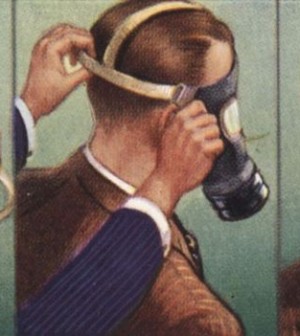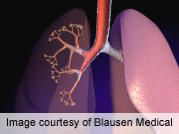- Double Mastectomy May Offer No Survival Benefit to Women With Breast Cancer
- Toxic Lead Found in Cinnamon Product, FDA Says
- Certain Abbott Blood Sugar Monitors May Give Incorrect Readings
- Athletes Can Expect High Ozone, Pollen Counts for Paris Olympics
- Fake Oxycontin Pills Widespread and Potentially Deadly: Report
- Shingles Vaccine Could Lower Dementia Risk
- Your Odds for Accidental Gun Death Rise Greatly in Certain States
- Kids From Poorer Families Less Likely to Survive Cancer
- Tough Workouts Won’t Trigger Cardiac Arrest in Folks With Long QT Syndrome
- At-Home Colon Cancer Test Can Save Lives
Gene Study Helps Advance Diagnosis of Cystic Fibrosis


MONDAY, Aug. 26Researchers who identified 105 new genetic mutations that cause cystic fibrosis say their findings will improve diagnosis and could increase the number of patients who receive individualized drug treatment.
Cystic fibrosis is a genetic disorder that causes a buildup of thick mucus in the lungs, resulting in frequent lung infections, breathing problems and decreased lung function. Eventually, the repeated infections destroy the lungs.
More than 1,900 mutations had already been identified in the gene responsible for cystic fibrosis, but it was unclear how many of them actually contribute to the disease.
In this study, researchers analyzed genetic information from nearly 40,000 cystic fibrosis patients in order to determine which of the 1,900 mutations are benign and which are harmful. Their findings increased the number of mutations known to cause cystic fibrosis from 22 to 127.
The study was published online Aug. 25 in the journal Nature Genetics.
Identification of these additional mutations in the cystic fibrosis transmembrane conductance regulator (CFTR) gene will bring certainty to families about whether someone has cystic fibrosis or is a carrier, and will also help efforts to design new drugs that target specific mutations. There is already one such drug on the market.
“Since not all mutations cause disease, sequencing the DNA in both copies of your CFTR gene and finding an abnormality in one wouldn’t tell us if you are a carrier for [cystic fibrosis] unless we knew if that abnormality causes [cystic fibrosis],” Dr. Garry Cutting, a professor of pediatrics in the McKusick-Nathans Institute of Genetic Medicine at the Johns Hopkins University School of Medicine, said in a Hopkins news release.
“Until this new work, more than a quarter of couples in which both partners were found to carry a CFTR mutation were left wondering if their mutations were going to affect their offspring. Now it’s down to 9 percent,” he explained.
More information
The U.S. National Heart, Lung, and Blood Institute has more about cystic fibrosis.
Source: HealthDay
Copyright © 2024 HealthDay. All rights reserved.










